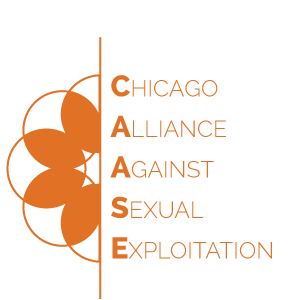Speaking in Dialogue: The Practice of Community Engagement
July 2, 2019
Community engagement goes by a few different aliases: audience development, outreach, organizing, networking. While it may involve those activities, I think community engagement is much more than any of those terms imply. Michael Rohd, a theatre practitioner who has collaborated with communities too numerous to name, taught me to think of community engagement as learning to speak in dialogue rather than engaging in monologue. Community engagement goes deep.
It’s not meeting with someone or a group once, twice or even a dozen times. Community engagement is sustaining space, time and energy to consistently listen to multiple perspectives while remaining flexible and responsive. It is cultivating the ability to hear what parts of the picture we’re missing and getting wrong so we can both pick up and hand over paintbrushes in order to collaborate on the creation of a more complete vision
My path to becoming the inaugural Community Engagement Director for CAASE was forged by 20 years of experience in the arts, advocacy for survivors of sexual and domestic violence, and youth- and community-led development. It has prepared me to listen to people whose perspectives are often ignored and dismissed: victims and survivors of sexual harm. Over the next year, much of my time will focus on crafting spaces and strategies to listen more deeply to survivors. For example, we’ll hold feedback sessions where CAASE shares research with survivors so their perspectives can shape our policy efforts. I’m looking for places we can hold writing circles and performance opportunities that give survivors brave space to detail and document their experiences and insights while building community. I’m developing a podcast that will allow survivors, advocates, and service providers to discuss tactics and strategies for survival, gaps in existing systems, available resources, and long-term solutions.

As CAASE addresses the incalculable impact of some of the most pervasive crimes on the planet, we want to be led by the expertise of people who’ve lived through sexual violation. How does our culture respond to sexual harm? What are the circumstances that allow it to occur? What can or should victims do to move forward? What policies or systemic changes are needed in Chicago and Illinois? Survivors bear the knowledge that’s critical to effectively responding to these questions. CAASE’s commitment to centering, affirming, and incorporating their voices and experiences will be made explicit by my work as it informs all we do.
The ways that systemic oppressions intersect and interact to create conditions in which sexual harm flourishes, while survivors struggle, can never be exposed enough. Though I am a survivor of sexual and domestic violence, I don’t speak for all survivors nor do they speak for me. When we gather together, we speak to and with each other. We listen to what many find hard to hear. We tell what many find hard to say. We strive to become and remain brave.
I hope those of you who’ve backed CAASE in the past are willing to support us in new ways as our community engagement efforts evolve and expand. There will be more opportunities to listen, to share, and to call us in so that our work may extend to more communities in deeper ways, in order to cultivate and sustain dialogue and insight. I invite you to go deep with us. Challenge what you think you know about people who’ve been sexually exploited and challenge us, too. This is an invitation to get brave: to really look at the impact of sexual harm so we can eradicate it for good.
In community and engagement,
Nikki



